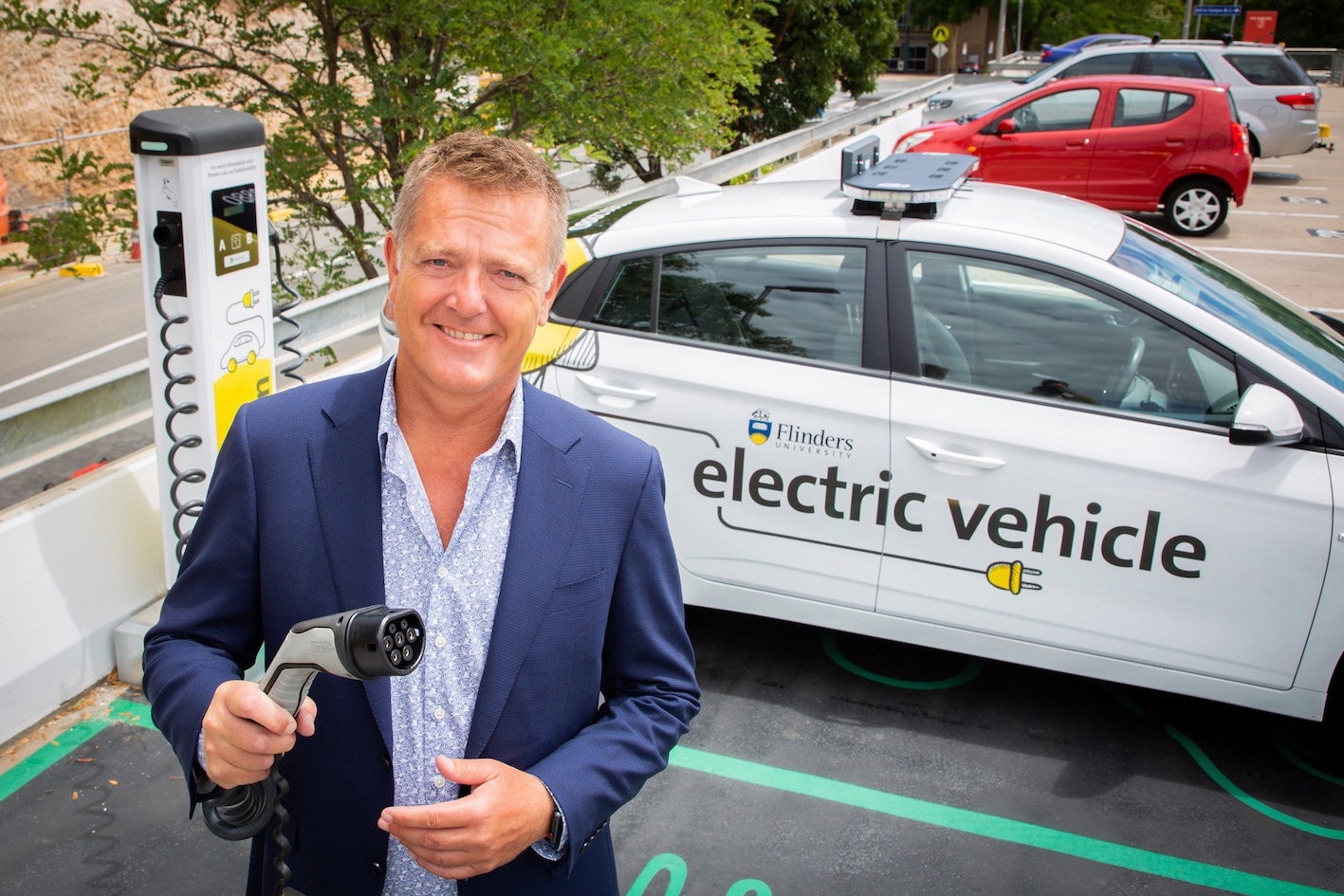Flinders University is launching 20 vehicle-to-grid chargers designed to export spare battery capacity generated by the university’s growing fleet of electric vehicles (EVs) into the electricity grid at its Bedford Park campus. The deployment also includes an additional two EV rapid charging stations, further enhancing charging capacity on campus.

Image Credit: Flinders University
Vehicle-to-grid (V2G) chargers enable two-way energy flow between the grid and EV batteries, allowing EVs to become mobile batteries that can store and supply energy directly to the grid during periods of high demand.
In collaboration with ENGIE Australia & New Zealand, the EV fleet at Flinders University will be fully charged at the beginning of each workday from low-demand night-time energy generated by ENGIE’s Willogoleche Wind Farm in South Australia.
Intermittent daytime charging will be supplemented by Flinders University’s onsite generated solar energy. The fleet will then be used as stationary batteries feeding renewable energy back to the campus grid from 5-9 pm, when demand is highest in the wider SA grid and primarily gas-generated.
The South Australian Government is supporting this initiative with more than $350,000 as part of the South Australian Electric Vehicle Smart Charging Trials, enabling the university to procure Nissan Leaf vehicles with two-way batteries pre-installed, which allows them to be charged from the grid but also provide power.
Vice-Chancellor Professor Colin Stirling says Flinders University is committed to deploying its growing fleet of electric vehicles by developing new and innovative ways to generate and store electricity on campus while also providing energy back into the electricity network, as part of its Sustainability Plan 2025.
“Our goal is to expand the Flinders University EV fleet so we can construct a 650 kW virtual battery, using both smart charging stations and vehicle to grid technology,” says Professor Stirling. “This will allow our fleet of security and pool vehicles to operate in a way that embodies renewable energy generation, reducing the university’s peak demand while delivering benefits for the SA grid.
“This project supports our sustainability goals in transitioning the university’s fleet of vehicles to electric and Bedford Park represents an ideal location for the development of innovative networks that can inspire the wider SA community, with our campus already powered by 100% renewable energy.”
Ten of the innovative V2G chargers, installed by JET Charge, are being located at Flinders University’s car park nine (Bedford Park), where the university’s EV fleet is currently based, and an additional 10 chargers at car park three near the large solar car park installation.
ENGIE will also offer two rapid charging stations at car park two (Bedford Park), which will be accessible for students and staff, located within walking distance of the College of Education, Psychology and Social Work.
This will provide an important additional link in ENGIE’s broad rapid charging network throughout Adelaide.
The opportunity to install two-way chargers is the latest initiative linked to the strategic partnership between ENGIE and Flinders University, which is investigating further ways to reduce emissions and achieve energy generation and storage targets.
ENGIE’s Director of Transport and Green Mobility, Mr Greg Schumann, says the program will help Flinders University achieve its sustainability targets and raise awareness of the convenience of transitioning to an EV.
“There’s increasing interest in integrating green power supply, EV charging and battery management systems that optimise energy consumption, while lowering carbon emissions,” says Mr Schumann.
“We’re thrilled to be expanding our partnership with Flinders University as they progress towards a Climate Positive Campus and we applaud the SA Government for their additional funding support to accelerate the uptake of EVs.”